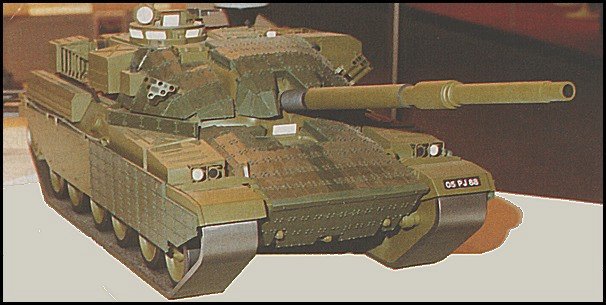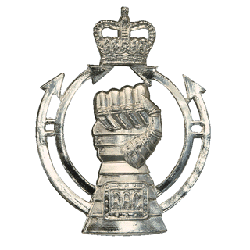
|
||||||||||||||||||||||||||||||||||||||||||||||||||||||||||||||||||||||||||||||||||||||||||
Merci à Ian Tong pour sa permission de publier ses photos et à David Willey Curator de Bovington Museum qui recu les Frenchies de très belle maniere soo britihs lors de notre visite au Musée et n'oublions pas notre Guide Big Moustache qui nous repondait sans cesse et au garde à Vous Yes Sir !!!!!
Photoscopes du Chieftain sur maquetland
Chieftain Crazy Horse Project Bovington Chieftain .Prototype Tourelle Bovington Chieftain 800-900 Prototype Bovington Chieftain Aluminium Tank FV4211 Bovington Chieftain Casement Test Rig (CTR) SPG Bovington Chieftain Khalid Bovington Chieftain Khalid Bovington Chieftain Mark 1 Bovington Chieftain Mark 10 Chieftain Mark 10 Arsenalen Suède Chieftain Mark 10 Camo Berlin Chieftain Mark 10 Camo Berlin Saumur Chieftain Mark 11 FV 4211 Bovington Chieftain Mark 12 Chieftain Mark 12 SID Bovington Chieftain Mark 2 Chieftain Mark 5 Chieftain StillBrew Chieftain Tourelle Intérieur Chieftain. Prototype 1 Bovington Chieftain. Prototype 6 Bovington Chieftain ARV Chieftain ARV Chieftain AVLB Chieftain AVLBBR 90 Chieftain AVRE Chieftain FV4203 AVRE Bovington Chieftain Moteur Leyland L 60 Chieftain Moteur Leyland L 60
Automoteur Anti Aérien Chieftain Marksman Chieftain 120mm HESH Round Bovington Un char possède 3 atouts principaux la puissance de feu, la mobilité et la protection. Peu de chars peuvent être en mesure d’allier les trois Au milieu du 20ème siècle, les Européens de l'Ouest ont à choisir une nouvelle génération de char et chaque pays a sa philosophie sur ce sujet
La France a choisi la mobilité avec l'AMX 30 l'Allemagne occidentale la puissance de feu avec le Léopard et la Grande-Bretagne la protection avec le Chieftain Le Chieftain
Le Chieftain a été le principal char ( MBT) britannique pendant les années 1960 et 1970. Pour son époque, il a été l'un des plus puissants avec son canon de 120 mm, et son blindage imposant au moment de sa mise en service en 1966 Il a été a également la base d'une famille de véhicules militaires comme FV4205 AVLB poseur de Pont du FV4204 ARV / ARRV véhicule blindé,de dépannage et le Chieftain Mineclearer ou de déminage plus des prototypes qui ne furent pas suivis d’une construction en série comme le Chieftain Saber avec tourelle avec canon jumelés de 30 mm. Développement L’Armée de terre britannique a 2 types de char dans les années 1950
Le Centurion (FV4001) comme Char Moyen (Medium Gun Tank) et le Conqueror (FV 214) comme char lourd ( MBT Main Battle tank) Le Centurion a été conçu en 1943 pour contrecarrer les chars lourds allemands Mais il ne connaîtra le baptême du feu pour la première fois qu’en Corée en 1951 . Le Conqueror lui ne connaîtra jamais le feu Les enseignements de cette première confrontation vont pousser l'Etat Major à lancer un programme pour un nouveau char moyen le FV 221 Caernavon d'autant plus que, en 1954, la production de Centurion qui doit prendre fin suivi en 1957 par le Conqueror . Le nouveau char aura un poids entre 45 et 65 tonnes pour une vitesse de 25 km / h. Le char devra emporter de 60 à 80 obus et l’arme devra être gyrostabilisée Les études ont été achevées en Juillet 1951 avec l'adoption du canon 105 mm Américain à grande vitesse de feu arme plus puissante que le 20 livres Anglais (84mm). Mais il ne peut emporter que 40 obus car tout a été axé sur une protection renforcée de l’équipage avec un poids total de 48 tonnes Le système d'armes et son chargement automatique imposent des sanctions en terme de poids Aussi en 1954 le Centurion, a réarmé avec un 105mm et une amélioration de sa protection À la mi 1954 un nouveau char est proposé celui-ci devrait avoir un canon de 120 mm (le calibre optimum exigé par l’OTAN pour un char de combat ) La conception du véhicule évolue avec le conducteur à l’avant du châssis en position centrale et un nouveau moteur V8 proposé pour remplacer le vieux moteur Meteor. Il a également une nouvelle transmission automatique et un groupe auxiliaire. Le poids de ce nouveau véhicule atteint 47 tonnes Leyland Motors est désigné comme maître d oeuvre pour la conception du nouveau MBT ou FV 4201 Mais ce véhicule se rapproche par sa conception du Conqueror avec un châssis avant similaire
Dans le même temps que le Centurion évolue en version Mk 7 et 8 on voit apparaître un nouveau véhicule le FV4202 de 40 tonnes Ce Centurion 40 tonnes a été un outil de travail pour valider les concepts qui seront mis en application avec le FV 4201 Le 21 août 1958, le concept du FV 4201 est figé Les leçons de la guerre de Corée et des menaces nucléaires font que le nouveau engin a un poids total de 58 tonnes pour pouvoir posséder un armement lourd un blindage et une motorisation puissants Vickers Armstrong a la responsabilité de la mise au point de la tourelle et de l’armement
Le développement de la motorisation a été laissé à Leyland qui utilise le moteur L60 avec l'adoption d’une boîte à vitesses semi- automatique TN 12 conçu pour le défunt char léger FV300 En Mars 1959, l’ensemble est validé. Le futur MBT aura un poids de 58 tonnes,un armement principal de canon de 120 mm et une vitesse de 48 km / h Le premier prototype P1 est achevé en Septembre 1959 et 6 autres prototypes ont été livrés au corps de troupes entre Juillet 1961 et avril 1962 Les essais effectués entre-temps mettent en avant nombres de défauts sur le moteur notamment des vibrations excessives Les essais pour le canon et la tourelle commencent en 1961 et ils se concluent de façon satisfaisantes, seul le tourelleau du chef de char est modifié en version Mark II. Quarante véhicules de type Mark 1 sont construits avec un tourelleau semblable à celui utilisé par les Centurion Mark 8, 9, 10 et12 et l'arrière de la tourelle a été revue pour intégrer la filtration NBC Une partie de ces Mark 1 sont envoyés en unités (1°et 5° RTR en Allemagne (BAOR British Army On the Rhine )et le 1er mai 1963 le Chieftain est déclaré bon pour le service Le11° Hussard (BAOR) reçoit son premier Chieftain au début de l'année 1967
Un nouveau Chieftain Mark 3 a été Livré dans septembre 1969 avec comme modification un nouveau tourelleau une nouveau groupe auxiliaire et des modifications au moteur. En 1971 un nouveau Chieftain Mark 4 a été annoncé avec le moteur amélioré Le poids atteint désormais de 54 tonnes Description
Le Chieftain est de conception classique avec châssis et une tourelle fuyante L'usage d'un télémètre optique permettre une conception de la nuque de tourelle différente Dans la tourelle, nous trouvons le chargeur à gauche et le tireur à droite du canon Le chef de char se trouve derrière le tireur Le tourelleau possède 9 épiscopes périscope de jour et 1 de et nuits avec un projecteur IR. Le télémètre du tireur peut être utilisé de jour avec un agrandissement de X8 et de nui avec un agrandissement de X 3 Dans la partie gauche de la tourelle dans un logement blindé se trouve un projecteur de recherche (Normale et IR) pourtant de 1000 à 1500 m . L’absence de masque de tourelle permet d’incliné le tout dont le système d’arme jusqu'à +10 ° Durant les différentes mises à niveau il reçoit le télémètre laser et sur le Chieftain Mc 5, nous trouverons un ordinateur de tir et un nouveau système de visée L’armement principal est un canon de 120 mm, L 11 A 5 de 50 Calibres rayé une arme novatrice car elle utilise des douilles consumables . Il n’y a pas à stocker ni a jeter à l extérieur les douilles vidés Elle peut tirer des munitions APDS APFSDS WP et HESH mais par HEAT car l'armée britannique utilise des munitions HESH qui opèrent comme le pain de plastique . Mais si le blindage est composite la munition HESH est moins efficace que la munition HEAT les 64 obus sont rangés dans des conteneurs, remplis de liquide à l'épreuve du feu La conduite de tir au début était une FV GCE Mc 4, L’armement coaxiale est une MG 7.62mm MG L8A1 mais sur Mark 1 et Mark 2 EPM on trouve une MG Calibre 50 (avant l'introduction du télémètre laser). Le tourelleau possède une MG 7,62 mm MG L37A1 anti aérienne et des lance grenades (DREB) Une légende affirme que le char a été construit autour du canon Dans le châssis, nous trouvons à l’avant le conducteur semi allongé au centre . Cette position permet de réduire la hauteur totale de l engin . Une lame bulldozer en option peut équiper le char à raison de une par escadron Il a un périscope grand angle. L’arrière du châssis est occupé par le moteur dérivé du Junkers Jumo 205 moteur d’avion allemand . Ce moteur multi carburant, il est compact, mais dans la pratique, le moteur n'a jamais fourni la puissance attendue, et il a été perpétuellement sujet à des vibrations et possédât toujours de tuyaux d’échappement inadaptés Ce moteur a fait l objet de perpétuelles améliorations La suspension a du type Hosrtmann pour les boggies avec de grandes jupes sur les côtés pour protéger le train de roulement contre les attaques de charge creuse . Chieftain en service Le Chieftain a été l'épine dorsale de l'Arme blindée britannique dans les années 70 et 80, la plupart des Chieftain étant affectés au BAOR qui faisait face au troupes du Pacte de Varsovie Il a été remplacé par le Challenger dont la conception a été influencée par le Chieftain . La dernière version Chieftain utiliséé par l'armée britannique jusqu'en 1995, incorpore le blindage "Stillbrew" nommé d'après le colonel Colonel Still et John Brewer du Military Vehicles and Engineering Establishment (MVEE), Il n'a pas été adopté par les pays de l'OTAN, mais il a été exporter au Moyen-Orient. Il a été fourni à l'Iran Koweït Oman et la Jordanie. La vente à Israël a été annulée par le gouvernement britannique en 1969
Il a été utilisé également par l'Armée Irakienne qui a utilisé des chars iraniens capturés Versions Chieftain Mk 1, 40 véhicules en 1965/1966. Chieftain Mk 2 Premier modèle de service avec moteur de 650 CV. Avec nouvelle protection de tourelle nouveau tourelleau et échappement Chieftain Mk 3 Mk 2 avec suspension renforcée ( nombreuses sous versions) Chieftain Mk 4 2 vehicules pour Israël . Chieftain Mk.5 production finale avec des remises en état portant sur me la centrale électrique et du système de protection NRBC. Chieftain MK.6 Mk 2 remise à niveau Clansman radios. Chieftain Mk 7 remise à niveau premiers Marks 3 Chieftain Mk remise à niveau premiers Marks 3 Chieftain Mk 9 remise à niveau premiers Marks 4 5 6 7 et 8 Chieftain Mk.10 remise à niveau, blindage Stillbrew nouvelle protection de la tourelle et de l arc avant Chieftain Mk.11 Mark 10 de mise à niveau, Projecteur est remplacé par le système de recherche thermique d'observation et de tir (Thermal Observation and Gunnery System (TOGS), de Barr and Stroud.). Chieftain Mk.12/13 prototype annulé lorsque Challenger 2 a été mis en service. Chieftain Mk 15 Chieftain pour Oman Famille FV 4201
FV4205 AVLB Poseur de pont. FV4204 ARV / ARRV véhicule blindé de l'Arme blindé de récupération et de réparation des véhicules. CHAVRE Prototypes FV 4203 AVRE annulé Chieftain Mine clearer destructeur de mine Chieftain Marksman Version SPAAG (anti aérien ) équipé d’une tourelle Marksman .. Chieftain Sabre Tourelle avec des canon AA de 30 mm jumelée
Version Export . Khalid ou Shir 1 version jordanienne et iranienne avec le train de roulement du Challenger 1. En gros, cette version est une version intermédiaire du Chieftain vers le Shir2 destiné à l'Iran, mais dans la vente a été annulée en 1979 Le Shir2 est devenu Challenger1 Le châssis différent permet le montage d’un moteur Rolls CV12. Shir 2 version iranienne Différences extérieures visibles par rapport au Chieftain MK5 comprenait une nuque de tourelle fuyante et la suppression du phare de recherche sur la gauche de la tourelle plus la mise en place de nouveaux paniers de tourelle modification de du tourelleau . Caractéristiques Poids: 55 tonnes Équipage: 4 Longueur avec canon : 10,8 m Longueur de coque: 7,5 m Largeur: 3,5 m Hauteur: 2,9 m Moteur Motorisation: Leyland L60 (diesel) 695 CV Autonomie: 500 km Vitesse sur route: 48 km / h Vitesse tout terrain: 30 km / h Armement 1 canon 120 mm L 11A5 rayé 1 MG L8A1 coaxial 7,62 mm 1 MG en coupole L 37 A1 7,62 mm 2 X 6 DREB sur l avant de la tourelle
The Chieftain MBT ( FV 4201)
A tank has 3 main attributes Fire power , mobility and protection . Few tank can able to join this 3 attributes In ten middle of the 20th century Western Europeans Countries have to choose a new generation of MBT and every country has his philosophy upon this subject
France has choose the mobility with the AMX 30 Western Germany the fire power with the Leopard and Great Britain the Protection with the Chieftain The Chieftain was the principal British MBT during the 1960s and 1970s. For his epoch it was one of the most powerful tanks of its era with his 120 mm gun , and his heaviest armour at the time of its introduction in 1966 Chieftain was also base of a family of military vehicles as FV4205 AVLB Bridge-laying vehicle FV4204 ARV/ARRV Armoured Recovery Vehicle, Armoured Recovery and Repair Vehicle,Chieftain Mineclearer ,Mine-clearing development.
Chieftain Sabre with Twin 30 mm AA turret.
Development
British Army has 2 kinds of tanks The Centurion( FV4001 ) as Medium Gun Tank and the Conqueror ( FV 214) as MBT Centurion was conceived in 1943 to thwart the heaviest German tanks But he fight in real condition for the first time in Korea in 1951 . The Conqueror has never see the fire The lessons of this first confrontation push the General Staff to start a plan for a new medium Gun tank the FV 221 Caernavon all the more that in 1954 the production of Centurion due to end followed in 1957 by the Conqueror. The new tank will be have a weight between 45 and 65 Tons with a cross country speed of 25 km /h . The frame will be carry 60 to 80 rounds and the gun will be stabilized Studies were completed in July 1951 with the adoption of an US105 mm high velocity gun heavier than the UK 20 pounder (84mm) . But with a postulate of major protection of the crew and a weight of 48tones the new MBT can carried only 40 rounds It is all the weapon system ( gun rounds and automatic loader ) who impose weight penalties In 1954 Centurion was up gunned with a 105mm and its protection improved In mid 1954 a new MBT was proposed The MBT could have a 120mm gun (the optimum calibre for a tank to met the future NATO requirements . The design of the vehicle change with the driver in a close down position and a new V8 engine was proposed to replace the hold Meteor . He has also a new automatic transmission an a auxiliary generating engine . The new vehicle weigth was of 47 tons Leyland Motors will been nominate as the main design contractors for the new MBT FV 4201 But this vehicle a design similarly of the Conqueror in the chose of the complex sloping of the glacis plate
In the same time of the development of Centurion 7 and 8 MGT in 1956 a new vehicle FV4202 of 40 tons appear This so called 40 tons Centurion was a vehicle to provide practical experience of number of concepts intend for FV 4201 In august 21st 1958 the design of the new vehicle was choose . Learning the lesson for Korean War and the nuclear threat the weight of this MBT increase to 58 tons for accept heavy gun , armour and powerful motorisation Vickers Armstrong brought the responsibility f the turret and the installations of the weapons
Development of the motorisation was pushed by Leyland with the L60 engine with adoption of the Semi automatic gear box TN 12 designed for the defunct FV300 Light tank In March 1959 the Mock up was accepted . The future MBT would have a weight of 58 tons an main armament of 120 mm gun and a speed of 48 km/h The first prototype or P1 was completed in September 1959 and 6 more prototypes were delivered for troops trials between July 1961 and April 1962 Extensive automotive trials carried out meanwhile and number defects on the engine by excessive vibrations The trials for the gun and the turret begin in 1961 and they were were satisfactory only the cupola was changed in Mark II version . Forty vehicles were built has Mark 1 specification were built with a .Commander cupola similar to that used in Centurion Mzrk 8 9 10 and 123 and the rear of the turret was redesigned to incorporate du CBR filtration Some of this Mark 1 were send un units ( 1st and 5th RTR in Germany ( BAOR) ans on may 1st 1963 this tank was good for the service .11th Hussard in BAOR receive the first Chieftzin in early 1967 A new Chieftain Mark 3 was delivred in spetmeber 1969 wiith modification on commander cupola new auxiliary generaor modifications to the engine . In Mide 1971 new cheieftan Mark 4 was announced with engine upgraded . The weight rise now of 54 tons Description
The Chieftain design is classical with an heavily sloped hull and turret .The use of a optical telemeter allow the design of the rear front of the turret slop and flying The turret we found the loader on the left and the gunner on the right of the gun with the commander behind the gunner The cupola commande has 9 episcopes and 1 periscope day and nigth with and IR searchligth. The periscope gunner can be used on day at enlargement X8 but in nigth only X 3 In the left side shelter a large infra-red searchlight Normal or IR with a range of 1000 to 1500 m was in an armoured housing and his mantle less turret, was in order to take full advantage of reclining the vehicle up to ten degrees in a hull-down position. During upgraded interventions he receive laser telemeter and on the Chieftain Mk 5 we found a balistic computer and a new aiming system . The main 120 mm L 11 A 5 50 caliber rifled gun was innovative, as it burnt away the cartridge, leaving nothing to be discarded. He has not to store the spent shell cartridge or eject them outside. He can fire munitions APDS APFSDS WP and HESH but nont HEAT because British Army has HESH munitions who operate has plastic upon safe But is the protection is composite the HESH was less effective than a HEAT The 64 shells are arranged in fireproof containers, filled with liquid. The original fire control system was a FV GCE Mk 4 He has a coaxial MG 7.62mm L8A1 machine gun but on Mark 1 and Mark 2 whe found coaxial .50 cal. ranging machine guns prior to the introduction of the laser rangefinder. In the commander cupola whe found an 7.62 mm anti aircraft MG L37A1 and smoke dischargers A legen said that the tank was built around this gun In the chassis we found in front the driver lay semi-recumbent in the hull when his hatch was closed down which helped to reduce overall height. An optional bulldozer blade was fitted to one tank per squadron) He has an periscope wide angle On the rear is positioned the engine derived from the german aviation aircraft Junkers Jumo 205 is a tow stoker opposed piston multi fuel it is compact But in practice the engine did never deliver the expected power, and he has perpetual leaks due to vibration and badly routed pipe work. This engine was always upgraded
The suspension was of the Hosrtmann bogie type, with large side plates to protect the tracks and provide stand-off protection from hollow charge attack. Chieftain in service The Chieftain was the backbone of the British Armour in the 70s an 80s most of the Chieftain are barracked in the BAOR facing the WAPA tanks He was replaced by the Challenger tank whose design was influenced by that of Chieftain. The final Chieftain version used by the British Army until 1995, incorporated "Stillbrew" armour named after Colonel Still and John Brewer from the Military Vehicles and Engineering Establishment (MVEE), He was not adapted by NATO countries but he found a large export market in the Middle East. He was supplied to Iran Kuwait Oman and Jordania . The sale for Israel was cancelled by the British Government in 1969
He was used also by Irakian Army who has captured Iran Tanks . Versions Chieftain Mk 1 40 training vehicles for 1965/1966. engine L 60 585 HP susbdivises in Mark 1/1 Mark 1 / 2 Mark 1/ 3 Mark 1/ 4 Chieftain Mk 2 First service model with 650 hp engine.new turret with improved ballistic protection new cupola new exhaust system
Chieftain Mk 3 basic Mark 2 but stronger suspension unit Extra equipment fitted giving rise to several sub marks.
Chieftain Mk 4 vehicles built for Israel
Chieftain Mk.5 definitive version Final production variant, with upgrades to the power plant (720 HP ) and NRBC protection system.
Chieftain Mk.6 Incremental upgrades to earlier Marks 2, including addition of Clansman radios.
Chieftain Mk 7 Incremental upgrades to earlier Marks 3 Chieftain Mk 8 Incremental upgrades to earlier Marks 3 Chieftain Mk 9 Incremental upgrades to earlier Marks 4 5 6 7 and 8 Chieftain Mk. upgrade, addition of Stillbrew Crew Protection Package to the turret front and turret ring.
Chieftain Mk.11 Mark 10 upgrade, searchlight replaced with the Thermal Observation and Gunnery System (TOGS), manufactured by Barr and Stroud.
Chieftain Mk.12/13 Proposed further upgrades, cancelled when Challenger 2 was introduced.
Chieftain Mk 15 Chieftain for Oman Family FV 4201
FV4204 ARV/ARRV Armoured Recovery Vehicle, Armoured Recovery and Repair Vehicle. FV4205 AVLB Bridge-laying vehicle.
CHAVRE Prototypes
FV 4203 AVRE Cancelled Chieftain Mine clearer Mine-clearing development Chieftain Marksman SPAAG version, equipped with the Marksman turret.. Chieftain Sabre Twin 30 mm AA turret
Export versions. Khalid or Shir 1 Jordanian / Iranian variant with running gear of the Challenger 1. Basically this was a transition vehicle from the Chieftain to the Shir2 which had been intended for Iran but was subsequently cancelled. The Shir2 tanks became Challenger1 tanks. The vehicle chassis comprised the front half of a Chieftain Hull and the rear of a 4030/2 Chassis. This allowed the fitment in the engine bay of a Rolls CV12 engine. Shir 2 Iranian variant. Visible external differences from the Chieftain Mk5 included a sloping rear hull, Removal of the Searchlight from the left turret area and storage baskets refitted, water channel removed from around drivers hatch on the glacis plate, modified light clusters also on the glacis plate, Larger sight housing on commanders cupola. Specifications Combat Weight: 55 tons Crew: 4 Length: 10.8 m Hull Length: 7.5 m Width: 3.5 m Height: 2.9 m Engine Power plant: Leyland L60 (diesel) 695 hp Range: 500km Max Road Speed: 48 km/h Cross-Country Speed: 30 km/h Weapon 120 mm L 11A5 rifled gun Coaxial MG L8A1 7.62 mm MG in cupola L 37 A1 7.62 mm 2 X 6-barrel smoke dischargers on turret
|
|
Droit d’auteur La plupart des photographies publiées sur ce site sont la propriété exclusive de © Claude Balmefrezol Elles peuvent être reproduites pour une utilisation personnelle, mais l’autorisation préalable de leur auteur est nécessaire pour être exploitées dans un autre cadre (site web publications etc) Les sources des autres documents et illustrations sont mentionnées quand elles sont connues. Si une de ces pièces est protégée et que sa présence dans ces pages pose problème, elle sera retirée sur simple demande. Principaux Collaborateurs:
Nb
de visiteurs:8903401 Nb
de visiteurs aujourd'hui:324 Nb
de connectés:52
| ||||||||||||||||||||||||||||||||||||||||||||||||||||||||||||||||||||||||||||||||||||||||





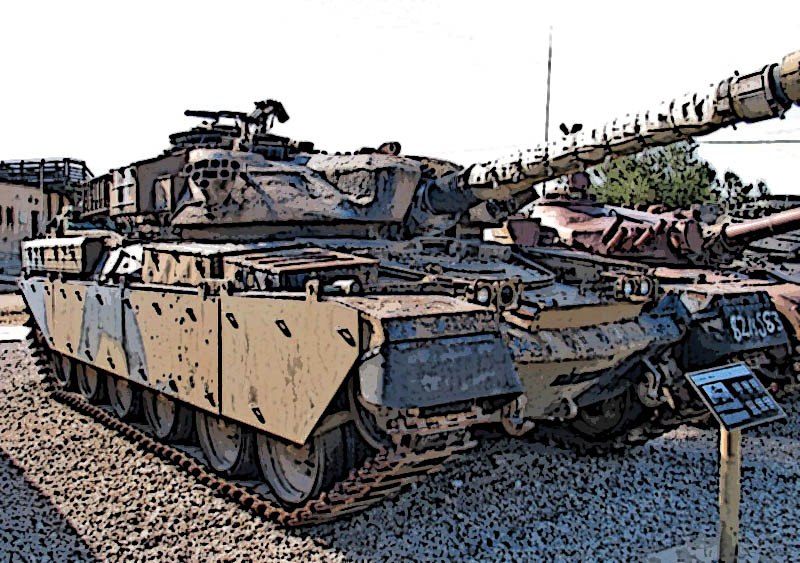
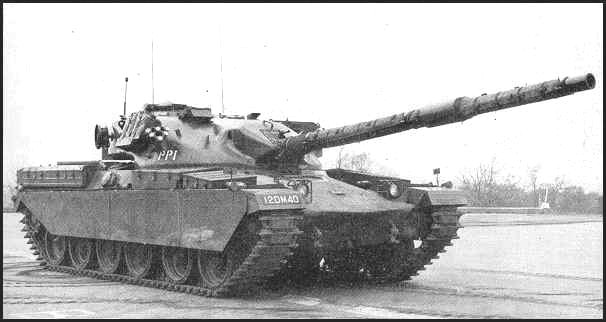
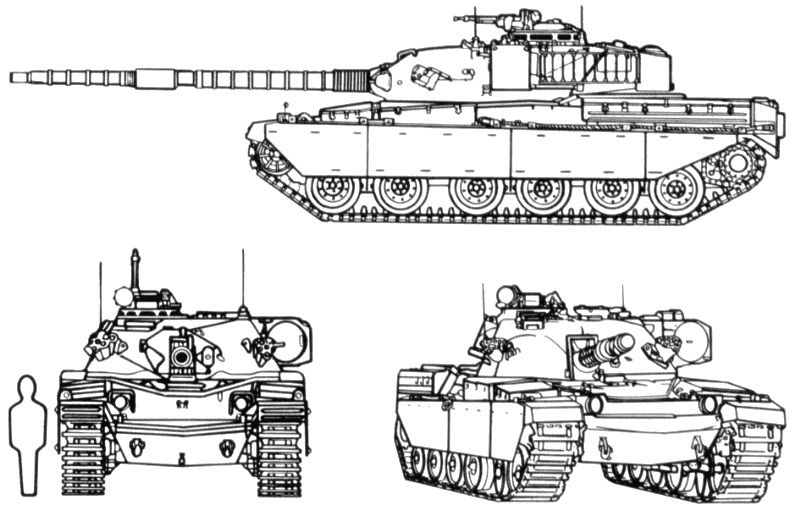
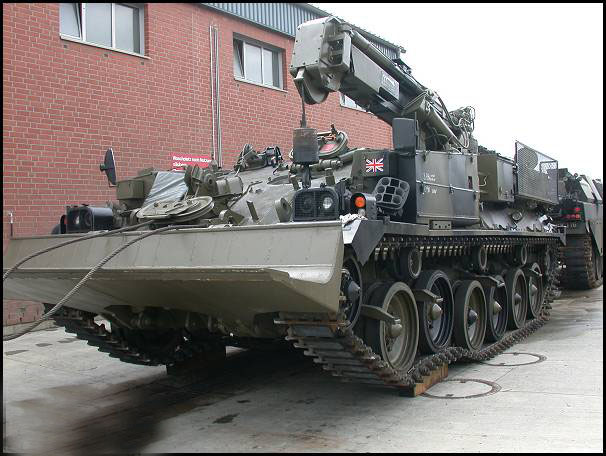
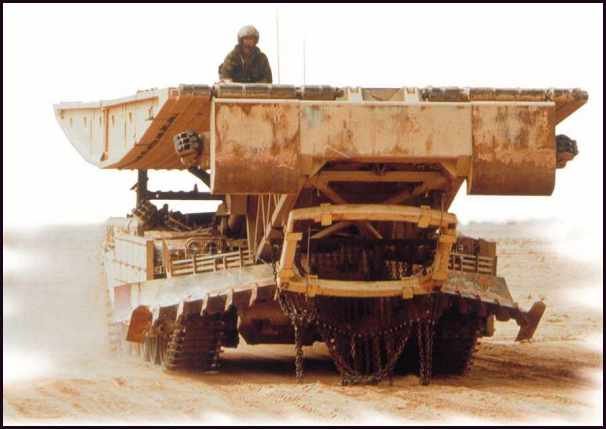
.jpg)
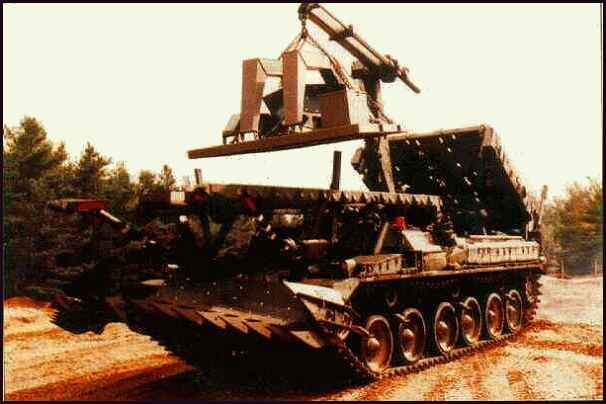
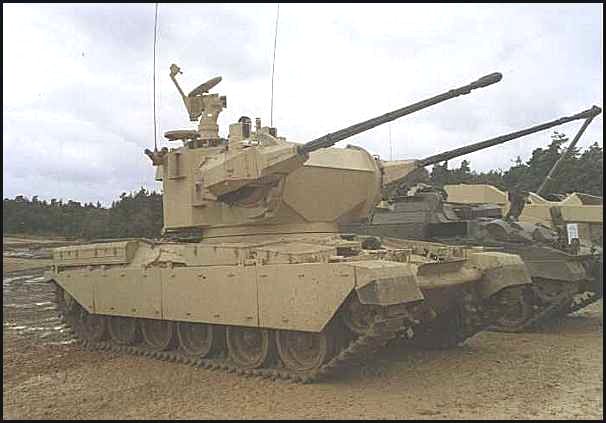
.jpg)
